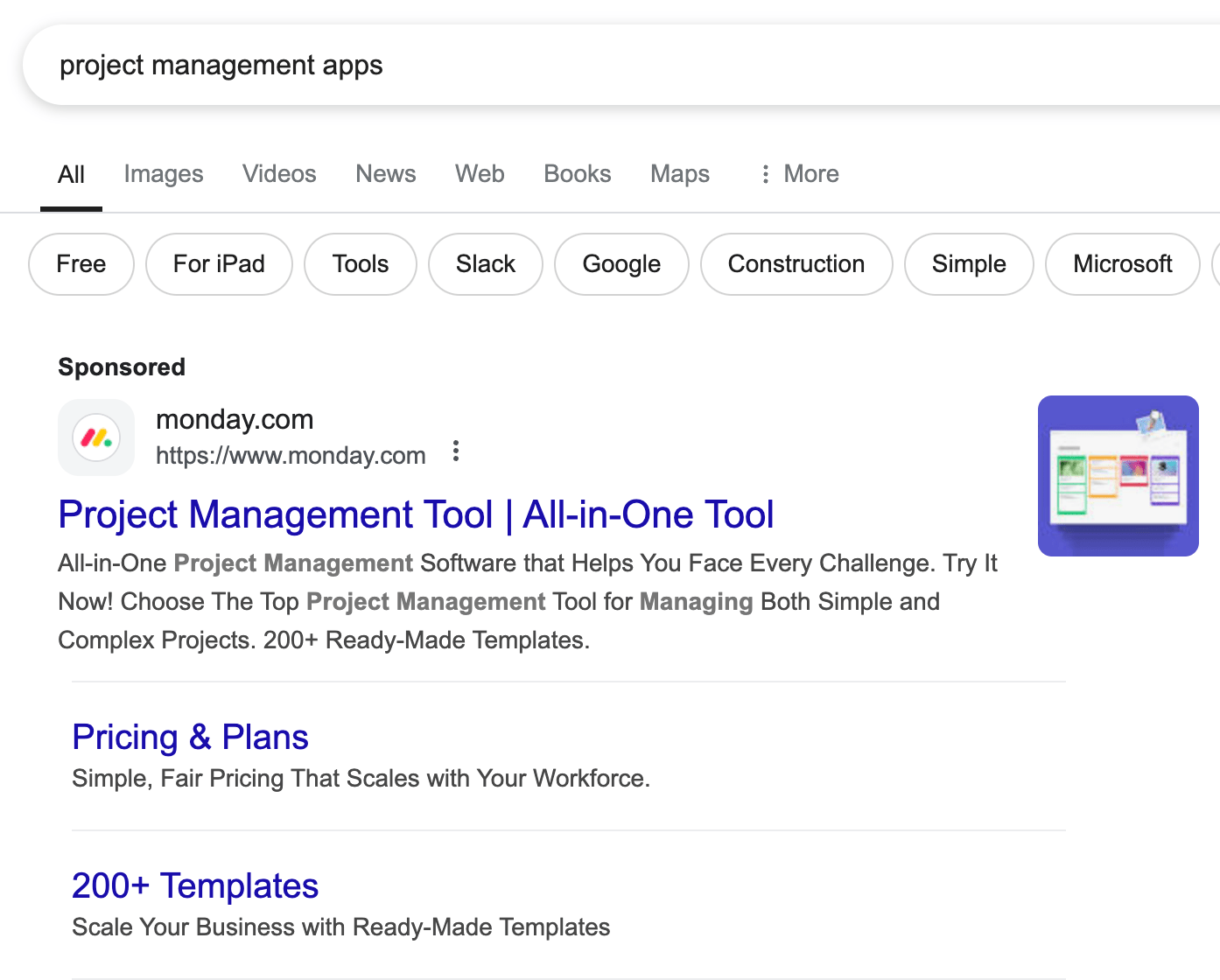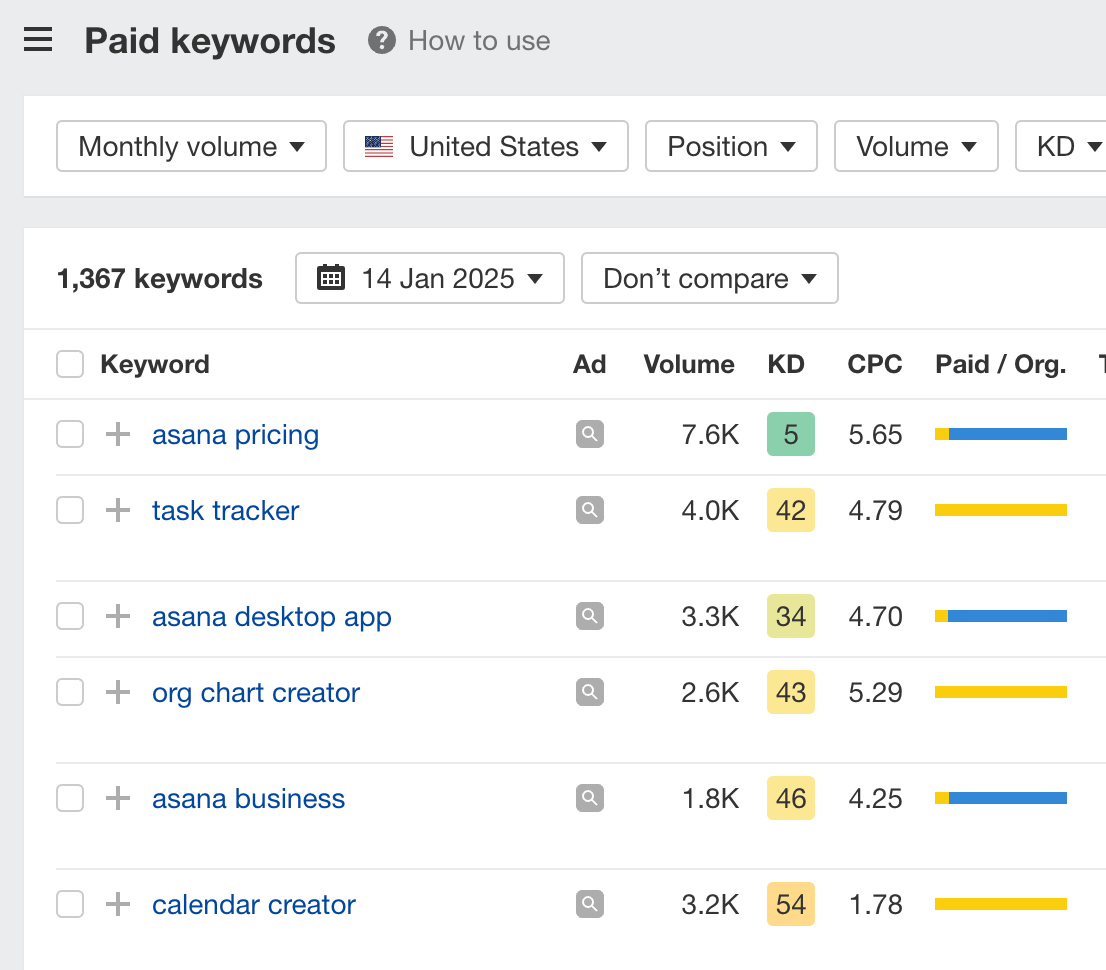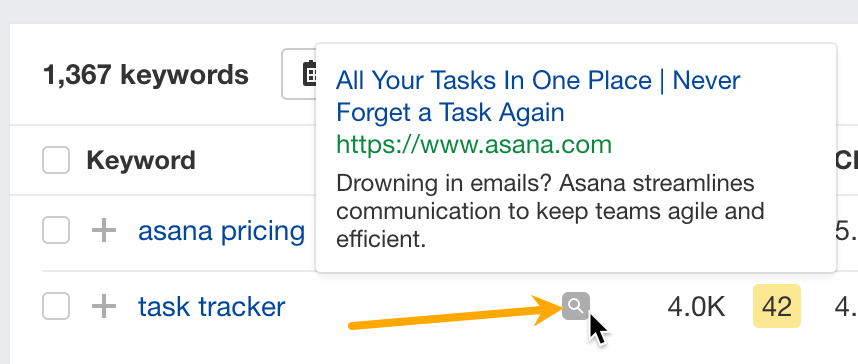These are the 100 most expensive keywords on Google Ads, along with their monthly search volume and cost per click (CPC).
The main reason is due to Google’s ads mechanism:
- Google Ads operates on a pay-per-click auction system.
- There are only a few ads that appear for each keyword.
Companies have to outbid each other in order to secure their spot at the top of the search results. If demand for a keyword is high, it means more companies are bidding for it, therefore driving up the cost per click.

Demand for a keyword is high when companies believe it will generate a return on investment (ROI). Typically, you’ll see this when:
- The industry offers high-value services or products (e.g., legal, finance) as each potential sale generates a lot of revenue.
- The keyword signals strong purchase intent (e.g., personal injury lawyer near me) as they’re likely to lead to direct sales or high-quality leads.
- The location is competitive and populous, e.g., “divorce lawyer in New York” will be more expensive than “divorce lawyer in Provincetown”.
- There is a peak season (e.g. tax season, holidays)
I analyzed the top 10,000 most expensive keywords to see which niches they belong to:
- Legal services (17.52%), with a focus on accident and injury law in specific locations (e.g., Baton Rouge)
- Ecommerce (3.85%), with a focus on promotional codes, brand-specific queries, and product searches.
- Education (2.58%), with a focus on university-related keywords, career and technical education centers, and student services and programs.
- Financial services (1.52%), with a focus on trading platforms, banking services, and investment-related terms.
- Technology (1.13%), with a focus on software development services, computer vision development, technical education and training, and international outsourcing (e.g, Romania)
Marketing consultant Dan Kennedy once said, “Whoever can spend the most money to acquire a customer wins.”
Your goal is not to avoid paying for expensive keywords, but to bid for keywords that make sense according to your goals and strategy. If a keyword generates a positive ROI for you, then you should continue bidding on that keyword, no matter how expensive it is. (Expensive is relative after all; a $10 cup of coffee is expensive to me, but could be of value to a snob.)
That said, there are ways to run your Google Ads more effectively, such as:
- Targeting long-tail keywords (e.g., “affordable personal injury lawyer in New York”), rather than generic, broad keywords like “personal injury lawyer”
- Using negative keywords to prevent your ads from appearing on irrelevant searches.
- Improving your Quality Score by writing relevant ad copy and creating targeted landing pages.
- Using retargeting to focus on people who’ve already interacted with your website or shown interest in your brand, product, or service.
If your competitors are paying for certain keywords, it may indicate that they’re profitable for them—and could be for you too.
Here’s how to find these keywords:
- Go to Ahrefs’ Site Explorer
- Enter your competitor’s domain
- Go to the Paid Keywords report

For example, if we analyze asana.com, we can see they’re bidding on 1,367 keywords in the U.S. We can also see the keywords they’re bidding on and how much they’re paying for each keyword (CPC).
If you hover over the magnifying glass, you can even see the ad they’re running for that keyword and the link they’re sending paid traffic to.







0 $type={blogger}:
Post a Comment